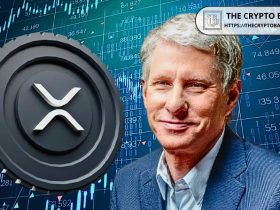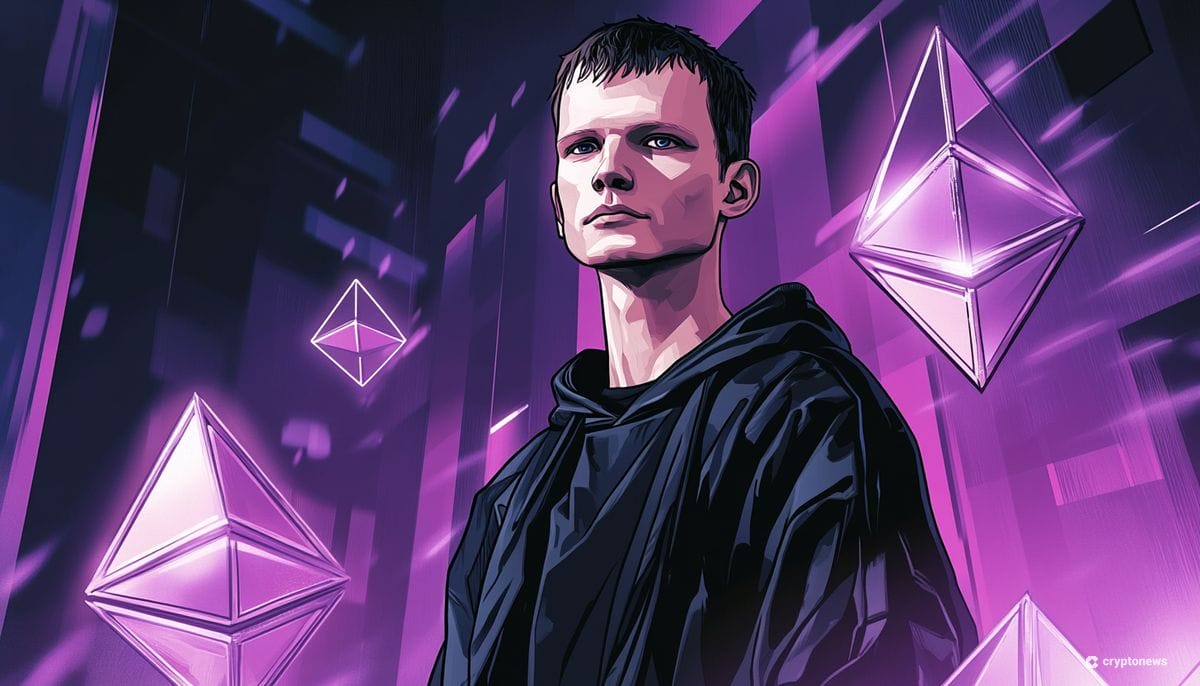After a similar scholarly debate last week, Vitalik Buterin brought up another contentious discussion with a crypto philosopher on X.

Similar to last week, Ethereum co-founder Vitalik Buterin has sparked a contentious discussion within the cryptocurrency community. But now he is answering to critiques that cast doubt on Ethereum’s decentralized finance (DeFi) strategy’s viability and course.
A crypto philosopher on X started this discussion, which explores the fundamental questions about the purpose and prospects of DeFi protocols.
In addition to defending Ethereum’s course, Buterin’s comments highlight more serious worries about the wider ramifications of the industry’s expansion and its capacity to solve important social issues.
Following up on the episode with Mattereum’s CEO last week, Vitalik takes a controversial stand on his beliefs and vision again today. Let’s enjoy the ride.
Vitalik “Vitamin” Vs Crypto Philosopher: DeFi Debate
The controversy began when a crypto philosopher publicly questioned Buterin’s stance on DeFi.
I watched the recent SteadyLads episode with Kain and I have to admit I had no idea that vitamin and the EF dislike DeFi…
— MilliΞ (@llamaonthebrink) August 24, 2024
It almost feels hard to believe in a sense.
The overwhelming majority of ETH’s value comes from its use as collateral in DeFi, why on earth would you want…
The philosopher expressed skepticism over reports that Buterin and the Ethereum Foundation were pulling away from the industry that provides the majority of Ethereum’s value.
He drew attention to the irony that Buterin appears to prefer centralized stablecoins like USDC over the very DeFi protocols that have made Ethereum a prominent blockchain platform.
He then moved forward and made a public call on “Vitamin,” and yes, Vitamin is Vitalik.
“If you have a line to vitamin I request that you send him this, I still don’t really believe the assertion that he doesn’t like defi but I’d prefer to hear it from the horse’s mouth.”
Buterin gave a straightforward and unreserved reply. He was a strong advocate of decentralized exchanges (DEXes), decentralized stablecoins (RAI), and cutting-edge marketplaces (Polymarket).
However, he established boundaries for unsustainable DeFi practices.
It is evident from Buterin’s comments that he is only enthusiastic about DeFi projects that share Ethereum’s fundamental values of permissionlessness and decentralization.
The source of the high yields that DeFi projects frequently boast about is one of Buterin’s main concerns.
The 2021 liquidity farming boom, which he saw as essentially ephemeral and unsustainable, was criticized for its high yields, which were mostly fueled by token issuances.
Buterin also questioned the sustainability of these models in the long run, urging the community to think about the true sources of yield and whether they are sustainable.
This position sparked more debate about Buterin’s reasonable acceptance of the centralized stablecoin USDC.
Notwithstanding the drawbacks of USDC, Buterin maintained that its importance in facilitating international trade, particularly in areas where traditional banking systems are less widely available, cannot be understated.
Although USDC may not be perfect, he noted that its widespread adoption could advance Ethereum’s larger mission by acting as a springboard towards more decentralized alternatives.
“Things that I *don’t* respect, are basically things whose attractiveness comes from some temporary source that has no sustainability, eg. I felt no excitement toward the 2021-era liquidity farming craze, because it was obvious that it came from token issuances that are fundamentally temporary.”
Vitalik has gained notoriety for his contentious opinions regarding crucial technical facets of the ecosystem. Many continue to find them perplexing and believe Vitalik is “insane” for his viewpoint on Ethereum, his own empire.
As a passerby shared under the argument,
“Vitalik, I think one of the reasons ppl have confusion or frustration about your views on DeFi is due to a miscommunication.”
Decentralization Beyond Finance: The Battle Continues
Buterin did not stop at DeFi; he took the conversation a step further by highlighting the wider issues with centralization outside the financial industry.
The kinds of applications that I want to see are applications that are (i) useful in a sustainable way, and (ii) don't sacrifice on the principles (permissionlessness, decentralization, etc)
— vitalik.eth (@VitalikButerin) August 25, 2024
I think DEXes are great, and I use them every week.
I think decentralized stablecoins…
He discussed a number of important concerns, such as the rise in political attacks on encrypted messaging, the risks associated with centralized artificial intelligence (AI), the dangers of centralized identity systems, and the increasing influence that a small number of powerful nations have over the global internet.
In this regard, Buterin emphasized that although finance plays a crucial role in the decentralized ecosystem, it is insufficient on its own to fend off the forces of centralization that pose a threat to international freedoms.
In his view, the emphasis should also be on advancing decentralized technologies that deal with these more general problems; these technologies frequently do not have the same funding or attention as DeFi projects.
While many found resonance in this broader perspective, it also attracted skepticism. Some in the community questioned whether Ethereum could reconcile these bigger objectives with its DeFi aspirations or if the platform’s reliance on DeFi would ultimately prevent it from making significant progress in other areas.
In the ongoing fight against centralization, Buterin envisions a synergy between decentralized finance and other decentralized technologies at these intersections.
He cited RAILGUN and Farcaster as two examples of how decentralized finance can assist with more general decentralized projects, such as social media anti-spam measures and payments that protect privacy.
Ultimately, the philosopher remained impartial and concurred with the majority of Vitalik’s arguments.
He clarified, though, that although he thought Vitalik’s ideas were impressive and, above all, morally righteous, they would not directly affect ETH assets.
“While I agree with some of this, I feel like the things you have in mind that might take crypto another 10-100x, although fascinating, will not really equate to any value for ETH the asset.”
Notably, Vitalik recently stated in a tweet that we should anticipate seeing more ETH evangelism from him in the future rather than philosophy.
I have been told that I need to "do less philosophizing and do more ethereum bullposting". Hence, here is an ethereum bullpost, courtesy of stable diffusion 3 inpainting + gimp. pic.twitter.com/ZcPjNVImpn
— vitalik.eth (@VitalikButerin) August 21, 2024















Leave a Reply